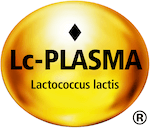How to Boost Your Immune System with Exercise

Want Strong Immunity? Start Walking, According to Science
It’s not a secret that physical activity is good for your health, but did you know that you can boost your immune system with exercise? It’s true. Growing evidence in the field of exercise immunology indicates that physical activity influences the normal function of your immune system. Whether for better or worse depends on the intensity and duration of exercise.
How Does Exercise Boost Your Immune System?
Your immune system consists of many different types of specialized immune cells that work together to protect the health of your body. Certain immune cells patrol the inside of your body on the lookout for outside substances; some specialize in attacking and eliminating potential threats; and others help coordinate a full-blown strategic defense when necessary.
In general, the majority of immune cells like to hang out in lymphoid tissue and organs, such as your intestines. Movement makes your heart pump and muscles contract, increasing blood circulation and lymph flow. And, consequently, the number of immune cells. According to a 2019 review published in the Journal of Sport and Health Science>, moderate to vigorous exercise lasting less than 60 minutes mobilizes an army of immune cells throughout the body — helping boost your immune responses.
However, for stronger immunity overall, consistency is key. While single bouts of physical activity can result in acute changes in immune function, moderate exercise on a near daily basis can have a summation effect, strengthening your immune system over time. Plus, regular moderate exercise helps reduce stress and lower inflammation in the body, as well as the risk of illness.1
Meanwhile, heavy physical exertion for extended periods of time tends to have the opposite effect. According to the review’s co-author, David Nieman, PhD, director of the Human Performance Lab at Appalachian State University and pioneer in exercise and immunology research, prolonged periods of intense exercise are linked with inflammation, oxidative stress and transient immune dysfunction.
Which leads us to the most important question: What exercises are best for strengthening your immunity?
Best Exercises to Boost Your Immune System
Research suggests that walking is the best exercise to boost your immune system. A study published in Medicine & Science in Sports & Exercise, also co-authored by Nieman, found that 30 minutes of brisk walking increased the circulation of vital immune cells, known as Natural Kill (NK) cells, as well as other white blood cells, that play crucial roles in a robust immune response.
However, the study also discovered that the immune-boost was short-lived and that the elevated cell counts dissipated around three hours post exercise. So going on a brisk walk today doesn’t exactly strengthen your immune system for tomorrow. Once again, consistency is key.2
According to Dr. Nieman, walking regularly should be enough exercise to help your immune system stay boosted and prepared to defend your health. An additional study lead by Nieman tracked 1,000 adults during flu season and found that those who walked regularly (5 or more times a week) reported 43% fewer sick days that those who exercised less often.3
And it’s not just walking. Dr. Nieman told Time that 30 to 60 min of any moderate intensity aerobic exercise, such as swimming, cycling or jogging, performed regularly can help maintain a strong immune system. But don’t overdo it, he warns. Seventy-five minutes or more of intense exercise can hamper your immune system. “When you go that long at a high intensity, stress hormones go way up, and the immune system does not respond well to that.”
Lift Weights to Boost Your Immune System
While the majority of exercise immunology studies have focused aerobic exercise, recent evidence suggest that strength training also positively influences the body’s natural defense system. According to a 2018 study in the Journal of Immunology Research, a single session of resistance training boosts the immune system at the cellular level, as well.4
For optimal overall health the Center for Disease Control and Prevention (CDC) recommends adults need 150 minutes of moderate-intensity physical activity and 2 days of full-body strength training. And while 150 minutes seems like a lot, it’s works out to only 30 minutes a day 5 days a week. As mentioned above, examples of moderate aerobic exercise include brisk walking, jogging, swimming or cycling; while strength training activities can include lifting weights, body weight exercises (like squats and pushups) and working with resistance bands.
Regardless of what you chose to do, some physical activity is better than none. So if you’re new to exercising try starting small with perhaps 10 to 15 minutes of walking 4 or 5 days a week, and build up to longer and more intense activity levels as you become more comfortable.
Interested in more ways to boost your immune system? Along with regular exercise and good nutrition, a daily postbiotic can help strengthen your immune system. IMMUSE™ (LC-Plasma) is a science-backed immune health ingredient shown to activate the immune system at the cellular level for year-round health when taken regularly.*
Click the button below to learn how IMMUSE activates various immune cells for more comprehensive immune support.
1Nieman, D., et. al. The compelling link between physical activity and the body's defense system. J. Sport Health Sci. 2019 May; 8(3): 201-217.
2Nieman, D., et. al. Immune Response to a 30-Minute Walk. Medicine & Science in Sports & Exercise. 2005 Jan; 37(1): 57-62.
3Nieman, D., et. al. Upper respiratory tract infection is reduced in physically fit and active adults. British Journal of Sports Medicine. 2011; 45: 987-992.
4Fortunato A.K., et al. Strength Training Session Induces Important Changes on Physiological, Immunological, and Inflammatory Biomarkers. Journal of Immunology Research. 2018 Jun 26; 2018: 1-12.
*These statements have not been evaluated by the Food and Drug Administration. This product is not intended to diagnose, treat, cure or prevent any disease.
